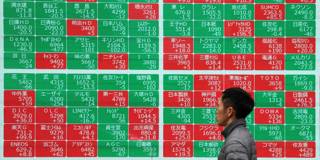Headlines confirming that Germany surpassed Japan last year as the world’s third-largest economy should serve as a wake-up call. Unless policymakers embrace far-reaching productivity-enhancing reforms, the country’s global position will continue to decline.
TOKYO – Harvard Professor Ezra Vogel’s 1979 book, Japan as Number One: Lessons for America, became an instant bestseller in Japan. The flattering title certainly helped sales, but it was the book’s central argument – that the Japanese approach to governance and business were superior to others – that really made a splash.

TOKYO – Harvard Professor Ezra Vogel’s 1979 book, Japan as Number One: Lessons for America, became an instant bestseller in Japan. The flattering title certainly helped sales, but it was the book’s central argument – that the Japanese approach to governance and business were superior to others – that really made a splash.